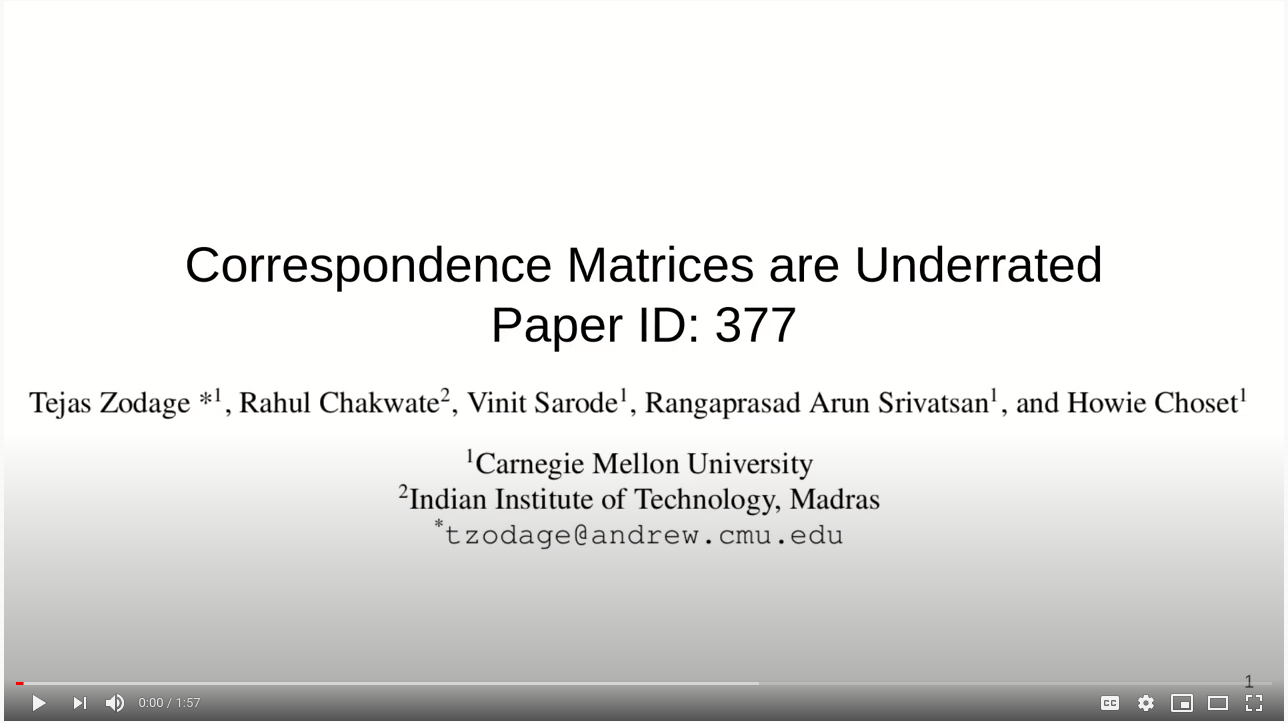This is the source code repository of the paper "Correspondence Matrices are Underrated" accepted at the 8th International Conference on 3D Vision, 2020.
Source Code Authors: Tejas Zodage, Rahul Chakwate, Vinit Sarode
This work is based on our observation that correspondence is more robust parameter for point cloud registration than transformations. We show that an existing deep learning based method which trains the network to learn transformations can converge faster, can register more accurately, and can register partial point clouds if trained to learn correspondence. This is demonstrated by comparing methods (Trained to learn transformation) like DCP, PCRNet, and RPMNet with method_corr (Trained to learn correspondence) DCP_corr, PCRNet_corr, and RPMNet_corr respectively.
See the following link for a video description of the method:
@InProceedings{tejas2020cmu,
author = "Tejas Zodage, Rahul Chakwate, Vinit Sarode, Rangaprasad Arun Srivatsan and Howie Choset",
title = "Correspondence Matrices are Underrated",
booktitle = "International Conference on 3D Vision (3DV)",
month = "Nov.",
year = "2020",
}
We demonstrate our approach on three recent network architectures: DCP, PCRNet and RPMNet.
Please refer to the ReadMe sections of the corresponding folders: DCP_Code, PCRNet_Code and RPMNet_Code.
This project is release under the MIT License.
The pretrained models for all three networks can be downloaded from here.
We would like to thank the authors of DCP, PCRNet, RPM-Net, and PointNet for making their codes available.
| DCP Vs DCP_corr |
|---|
 |
| PCRNet Vs PCRNet_corr |
|---|
 |
| RPMNet Vs RPMNet_corr |
|---|
 |

